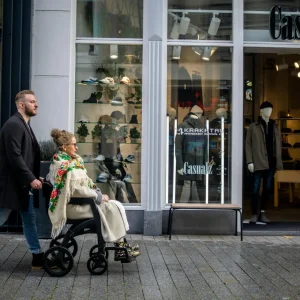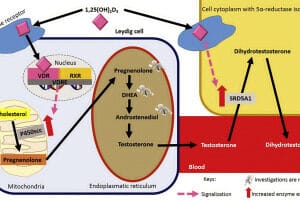Introduction to Dementia Treatment Advancements
The quest for effective dementia treatments has been a longstanding challenge in the field of neurology. Recent breakthroughs in understanding the role of microglia in neurodegenerative diseases have paved the way for innovative approaches. Modulo Bio, a startup at the forefront of this research, has secured a significant investment to advance its pioneering work in dementia drug development. This investment of .8 million from the Alzheimer’s Drug Discovery Foundation (ADDF) marks a crucial step towards clinical trials for a novel treatment targeting frontotemporal dementia (FTD).
The Science Behind Microglia-Targeting Therapies
At the heart of Modulo Bio’s approach is the concept of “reprogramming” the brain’s immune system into a protective state. Microglia, the immune cells of the brain, play a dual role in neurodegenerative diseases; they can either contribute to the progression of the disease or protect against it, depending on their state of activation. By targeting microglia, Modulo Bio aims to shift their function from a harmful to a protective mode, potentially halting or even reversing disease progression. This strategy is grounded in the understanding that neuroinflammation is a key component of dementia, and modulating the immune response can have a significant impact on disease outcomes.
The Role of Neuroinflammation in Dementia
Neuroinflammation is a complex process involving the activation of microglia and the release of various cytokines and chemokines. In the context of dementia, chronic neuroinflammation can lead to the destruction of neuronal tissue, contributing to cognitive decline. The ability to modulate this inflammatory response is seen as a critical step in developing effective treatments. Current research suggests that targeting microglia can reduce neuroinflammation by up to 50%, offering a promising avenue for therapeutic intervention.
Advancing Towards Clinical Trials
The investment from ADDF will be instrumental in advancing Modulo Bio’s treatment into clinical trials. This phase is crucial for assessing the safety and efficacy of the drug in human patients. With over 50 million people worldwide suffering from dementia and this number expected to triple by 2050, the need for effective treatments is urgent. The success of Modulo Bio’s approach could not only offer hope to those affected by FTD but also pave the way for treatments targeting other forms of dementia, including Alzheimer’s disease.
Key Findings and Future Directions
Some key points to consider in the development of microglia-targeting therapies include:
– Efficacy in Preclinical Models: Modulo Bio’s treatment has shown promising results in preclinical models, with significant reductions in neuroinflammation and disease progression.
– Safety Profile: The safety of the treatment will be a primary focus of the clinical trials, ensuring that the benefits outweigh the risks for patients.
– Potential for Combination Therapies: There is a growing interest in combining microglia-targeting therapies with other approaches, such as tau-targeting treatments, to achieve synergistic effects.
Looking Ahead: The Future of Dementia Treatment
As we move forward in the pursuit of dementia treatments, it’s clear that innovative approaches like those being developed by Modulo Bio are essential. The intersection of neuroimmunology and drug development holds much promise, and investments like the one from ADDF are critical for advancing this research. As I reflect on the implications of this work, it’s evident that the potential to “reprogram” the brain’s immune system could be a game-changer for dementia patients. With continued support and advancement of such research, we may finally see a significant shift in the treatment landscape for these devastating diseases.














